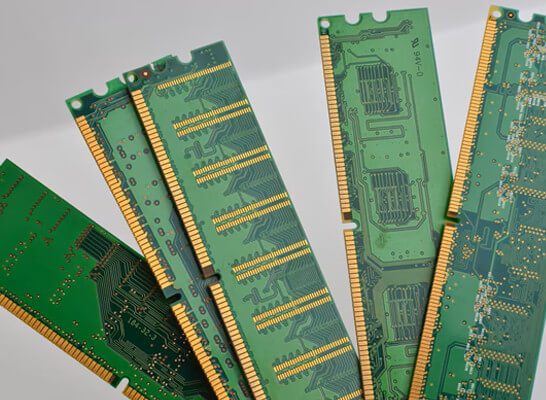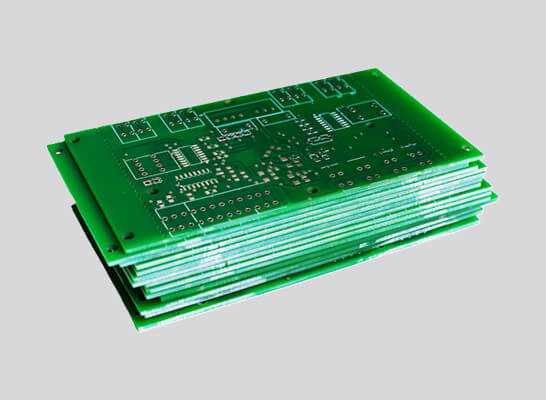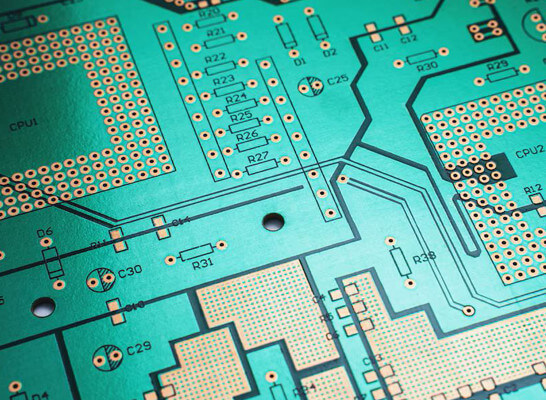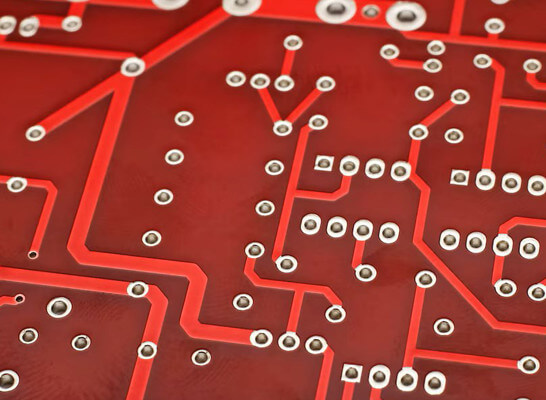Top Leading PCB Manufacturer in USA - High Quality & Trusted PCB Solutions
As a world-class electronics technology and solutions provider, ANZER stands out as a quality bare Printed Circuit Boards (PCBs) supplier. Our comprehensive engineering and manufacturing solutions deliver superior quality and give our customers a competitive edge in value, lead time, flexibility, and the lowest total cost.
ANZER's expertise is not limited to a single industry. We are dedicated to meeting high-mix, medium, and large-volume requirements across various markets, including industrial automation, power/energy, telecom, medical, and automotive. With our domestic and international manufacturing locations, ANZER brings a wealth of knowledge and experience, ensuring we understand and cater to the unique needs of each industry.
Why is Anzer the Best PCB Manufacturer?
Anzer positions itself as a leading PCB manufacturer for several reasons that contribute to its reputation:
- Quality Standards: Anzer adheres to stringent standards throughout its manufacturing process. This ensures that our PCBs consistently meet industry specifications and customer requirements.
- Advanced Technology: The company invests in state-of-the-art technology and equipment for PCB fabrication and PCB assembly. This enables them to offer cutting-edge solutions and maintain high production efficiency.
- Customization Capability: Anzer provides flexible and customizable PCB manufacturing solutions. We can tailor our services to meet specific design and performance criteria as our clients require.
- Expertise and Experience: With years of experience in the industry, Anzer has developed deep expertise in PCB manufacturing. Their knowledgeable staff and engineers contribute to our ability to deliver reliable and innovative solutions.
- Customer Service: We prioritize excellent customer service, ensuring clear communication, prompt response to inquiries, and support throughout the manufacturing process. This dedication to customer satisfaction helps build long-term relationships.
- Competitive Pricing: While focusing on quality, Anzer also offers competitive pricing for its PCB manufacturing services. This combination of quality and cost-effectiveness makes us an attractive choice for many customers.
- Reliability and Timeliness: They are known for meeting deadlines and delivering products on time. This reliability is crucial for customers who require timely delivery of PCBs for their projects.
Overall, Anzer distinguishes itself in the PCB manufacturing industry through its commitment to quality, advanced technology, customization options, and customer-centric approach, collectively contributing to its reputation as a top PCB fabricator. Here's an overview of various aspects of our printed circuit board (PCB) manufacturing process:
- Design Consultation: We offer design consultation services to help clients optimize their PCB layouts for manufacturability, functionality, and cost-effectiveness, guiding layout design, component placement, and routing.
- PCB Design: While some manufacturers focus solely on fabrication, we offer PCB design services. ANZER utilizes specialized software to create the layout of the PCB according to our client's specifications and requirements.
- Prototyping: We offer prototype PCB manufacturing and assembly, allowing clients to test their designs before moving into full-scale production. Prototyping involves producing a small batch of PCBs for testing and validation purposes.
- Fabrication: The primary function involved with PCB manufacturing is to fabricate the circuit boards following these simplified steps:
- Substrate Preparation: Prepare the base material, typically a fiberglass-reinforced epoxy laminate known as FR-4, by cutting it to size.
- Copper Cladding: Depositing a thin layer of copper onto the substrate. This is usually done through a process called electroplating.
- Photoengraving: Transferring the PCB design onto the copper-clad substrate using a photoresist material and exposing it to UV light. This step defines the conductive pathways (traces) on the PCB.
- Etching: Removing the excess copper from the board using chemical etchants leaves only the desired copper traces behind.
- Drilling: Drilling holes at specified locations for through-hole components and vias.
- Surface Finishing: A surface finish protects the exposed copper traces and provides solderability. Standard surface finishes include HASL (hot air solder leveling), ENIG (electroless nickel immersion gold), and OSP (organic solderability preservatives).
- Assembly: ANZER is a PCB manufacturer offering assembly services, which populate the PCBs with electronic components. This can involve through-hole and surface-mount technology (SMT) components, including automated pick-and-place machines, soldering equipment, and inspection processes.
- Quality Control: We perform quality control checks throughout manufacturing to ensure the finished boards meet the required specifications and standards. This may involve visual inspection, automated testing, and electrical testing to detect defects or inconsistencies.
- Packaging and Shipping: Once the PCBs have passed quality control, they are packaged according to our client's requirements and shipped to the designated destination.
As both a PCB manufacturer and PCB assembler, ANZER plays a crucial role in electronic device production by producing high-quality, reliable circuit boards tailored to our client's specific needs. Contact Us or Get a Quote to learn more.




PCB Process Capabilities
| Standard Features | Standard | Advanced |
|---|---|---|
| Maximum Layer Count | 40 | 50 |
| Maximum Panel Size | 720x621mm [21x24"] | 621x1219mm [24x42"] |
| Outer Layer Trace/Spacing | 76µm/76µm | 64µm/64µm |
| (1/3oz starting foil + plating) | [0.0035"/0.0035"] | [0.0025"/0.003"] |
| Inner Layer Trace/Spacing | 64µm/64µm | 50µm/50µm |
| (Hoz inner layer cu) | [0.003"/0.003"] | [0.002"/0.002"] |
| Maximum PCB Thickness | 3.2mm [0.125"] | 6.5mm [0.256"] |
| Minimum PCB Thickness | .20mm [0.008"] | .10mm [0.004"] |
| Minimum Mechanical Drill Size | .20mm [0.008"] | .10mm[0.004"] |
| Minimum Laser Drill Size | .10mm [0.004"] | .05mm [0.002"] |
| Maximum PCB Aspect Ratio | 25:01:00 | 40:01:00 |
| Maximum Copper Weight | 5 oz [178µm] | 6 oz [214µm] |
| Minimum Copper Weight | 1/3 oz [12µm] | 1/4 oz [9µm] |
| Minimum Core Thickness | 50µm [0.002"] | 38µm [0.0015"] |
| Minimum Dielectric Thickness | 64µm [0.0025"] | 38µm [0.0015"] |
| Minimum Pad Size Over Drill | 0.46mm [0.018"] | 0.4mm [0.016"] |
| Solder Mask Registration | ± 50µm [0.002"] | ± 38µm [0.0015"] |
| Minimum Solder Mask Dam | 76µm [0.003"] | 64µm [0.0025"] |
| Copper Feature to Edge, V‐cut (30°) | 0.40mm [0.016"] | 0.36mm [0.014"] |
| Copper Feature to PCB Edge, Routed | 0.25mm [0.010"] | 0.20mm [0.008"] |
| Tolerance on Overall Dimensions | ± 100µm [0.004"] | ±50µm [0.002"] |
| PCB Technologies | Standard | Advanced |
|---|---|---|
| Rigid‐Flex & Flexible Circuits | Y | Y |
| Buried and Blind Vias | Y | Y |
| Sequential Lamination | Y | Y |
| Impedance Control | ± 10% | ± 5% |
| Hybrids & Mixed Dielectrics | Y | Y |
| Aluminum PCB | Y | Y |
| Non‐Conductive Via Fill (VIP) | Y | Y |
| Conductive Via Fill | Y | Y |
| Cavity Boards | Y | Y |
| Back Drilling | Y | Y |
| Controlled Depth Drill and Rout | Y | Y |
| Edge Plating | Y | Y |
| Buried Capacitance | Y | Y |
| Etch Back | Y | Y |
| In‐board Beveling | Y | Y |
| 2‐D Bar Code Printing | Y | Y |
Advanced Processes
- Direct Imaging for Inner layers, Outer layers, and Solder mask
- Direct Plating for High Layer Count and Microvias Products
- Reverse Pulse Plating
- Solid Copper Plated PTH Vias
- XACT Tooling System for Improved Layer‐to‐Layer Registration
- Spray Coating for Solder mask
- Inkjet Printing for Legend
- In-line AOI for Outer layers and AOI for Final Inspection
- ORMET® Copper Paste for Any‐layer Connections
- ZETA® Material for HDI and Low‐Loss Applications
Surface Finishes
- Electroless Nickel Immersion Gold (ENIG)
- Hot Air Solder Level (HASL, Lead, and Lead‐free)
- OSP, Immersion Tin, Immersion Silver, ENEPIG
- Gold Fingers, Flash Gold, Full Body Hard Gold, Wire Bondable Gold
- Selective and Multiple Surface Finishes, Carbon Ink, Peelable SM
| HDI Features | Standard | Advanced |
|---|---|---|
| Minimum Microvia Hole Size | 100µm [0.004"] | 50µm [0.002"] |
| Capture Pad Size | 0.25mm [0.010"] | 0.20mm [0.008"] |
| Glass Reinforced Dielectrics | Y | Y |
| Maximum Aspect Ratio | 0.7:1 | 1:01 |
| Stacked Microvias | Y | Y |
| Copper Filled Microvias | Y | Y |
| Buried Filled Vias | Y | Y |
| Maximum No. of Buildup Layers | 3+N+3 | 5+N+5 |
| Preferred Materials | |
|---|---|
| FR4 Standard Tg | Shengyi, ITEQ, KB, Nanya |
| FR4 Mid Tg (Lead-Free Compatible) | Shengyi S1000, ITEQ IT158 |
| FR4 High Tg | Shengyi S1000‐2, S1170 |
| (Lead Free Compatible) |
EMC EM827
Isola 370HR
ITEQ IT180A
Panasonic R1755V
|
| High-Performance Low Loss FR4 |
EMC EM828, EM888(S), EM888(K)
Isola FR408, FR408HR
Isola I‐Speed, I‐Tera MT
Nelco N4000‐13EP, EPSI
Panasonic R5775 Megtron 6
|
| RF Materials |
Rogers RO4350, RO3010
Taconic RF‐30, RF‐5, TLC, TLX, TLY
Taconic 601, 602, 603, 605
|
| Halogen Free |
EMC EM285, EM370(D)
Panasonic R1566
|
| Aluminum Backed PCB | Shengyi SAR20, Yugu YGA |



